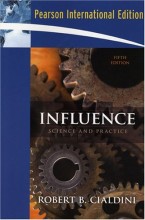Summary: Neuropsychology & Psychiatric Disorders
- This + 400k other summaries
- A unique study and practice tool
- Never study anything twice again
- Get the grades you hope for
- 100% sure, 100% understanding
Read the summary and the most important questions on Neuropsychology & psychiatric disorders
-
Lecture 01
This is a preview. There are 8 more flashcards available for chapter 01/09/2018
Show more cards here -
Similarities between neurology and psychiatry
- application of neurological methodology and diagnostics in psychiatric diseases
- interest of neurology in complex mental functions and psychiatric symptoms in neurilogical diseases
increased recognition- profound cognitive concequences of primary psychiatric disorders (schizophrenia)
- profound affective disorders of primary neurological disorders (Huntington)
-
Approaches used in neurology and psychiatry
- neurology used emperism and objectivity
- psychiatry uses inerviewing skis, psycho-logical therapies and appreciation of individual differences
both can learn from each other- neurologists assess psychiatric comorbidities
- psychiatrist become familiar with neuroscience research tools (neuroimaging)
-
contribution of neuropsychology to psychiatry
- some brain bases for neuropsychological functions have been established to some degree
- our understanding of neural correlates of psychiatric symptoms is more hazy
- neuropsychological processes may help our understanding of witch brain regions are involved in psychiatric disorders
Example- wisconsin card sorting test
- perseverative errors > continues with a wrong sorting strategy
- perseverative errors have been associated with frontal lesions
- same perseverative errors are made in patients with schizophrenia > means that frontal cortex is dysfunctional in schizophrenia
Higher brain functions cannot be mapped to a specific region
most mental processes are regulated by complex neural networks that connect various brain regions -
Improving diagnostic classification
- patients with a specific psychiatric condition form a very heterogenous group
- different pattern of performance on a neuropsychological test may be used to reduce the heterogeniety within disorders ans may improve diagnostic classifications
-
improving diagnostic classification comorbidity
- comotbidity between psychiatric diagnoses is common and similar symptoms are often observed across different disorders
- examining basic neuropsychological processes in psychiatric disorders may help to explain patterns of comorbidity between diagnostic entities
- high comorbidity of adhd and substance use disorders
- high levels of impulsivity in patients with adhd and patients with substance use disorders
-
improving diagnostic classification: identification of people at risk
- neuropsychological evaluation can reveal changes in cognitive functions that may revael to later onset of psychopathology
- verbal memory and attention deficits in children predicted cases of adult schizophrenia
- neuropsychological evaluation can reveal changes in cognitive functions that may revael to later onset of psychopathology
-
Lecture 02: ADHD in adulthood
This is a preview. There are 20 more flashcards available for chapter 02/09/2018
Show more cards here -
Adult presentation of ADHD
- symptoms diminish in severity and frequency
- higher impact if symptoms due to increased demands of adult environment
-
Adult presentation of ADHD: core symptom shift
- reduction of motor symptoms
- reduction of impulsivity
- inattention more prominent
-
Adult presentation of ADHD: associated features
- affective instability, emotional over-reaching resulting in poor tolerance of stress
- cognitive disturbances
- disorganisation
- marital problems
- occupational problems
- financial problems
- substance abuse
- increased risk behaviour
- delinquency
-
Adult presentation of ADHD: diagnosis
- ADHD in adults is often misdiagnosed or overlooked
- either diagnosed in children (easy to recognise) or never diagnosed before (difficult to recognise)
- 91-98% self-referral
- diagnosis in childhood, family members trigger self-recognition of symptoms, learning about condition through media
- Higher grades + faster learning
- Never study anything twice
- 100% sure, 100% understanding
Topics related to Summary: Neuropsychology & Psychiatric Disorders
-
ADHD in adulthood
-
ADHD - ADHD during adulthood
-
ADHD - ADHD in postsecondary students
-
ADHD - ADHD: a historical neuropsychological perspective
-
Tourette's syndrome
-
Tourette's - A review of the neuropsychological dimensions of Tourette syndrome
-
ED - could training executive function improve treatment outcomes for eating disorders
-
ED - Intolerance of uncertainty in eating disorders, an update on the field
-
Major Depressive Disorder






























